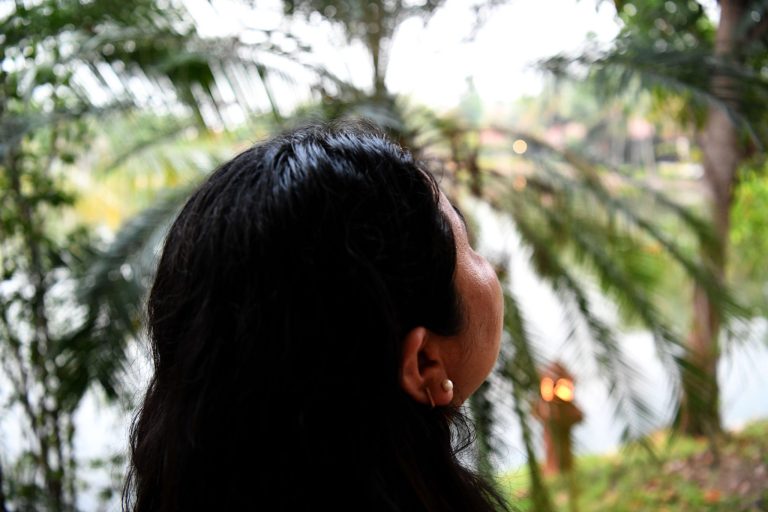‘They come as a humble cat and then become a tiger’
In countries like Myanmar and Nigeria, acts of persecution against Christians are more likely to make news reports because of their extreme violence. But in many other locations, persecution typically takes on a more subtle form. It likely won’t make any media outlet and might not have any documentation at all. But it’s still an ever-present issue that diminishes the quality of life for many Christians.
One place where such persecution occurs is Bangladesh, a South Asian nation with an overall population of 170 million, where over 90% of the people are Muslim and most of the remaining portion are Hindu.
Thomas (real name withheld to protect identity), a Christian in Bangladesh, says that many people “express their desire for conversion” to Christianity, but they don’t follow through with it due to “threats of killing and persecution.”
Many children in Bangladesh “grow up with a nasty mentality to hate other faiths,” says Thomas. In the villages, these children often target the Christian families “to steal and destroy farms and gardens.” He adds that when Christians protest such behavior, then things become more aggressive.
In the cities, says Thomas, anti-Christian sentiment can surface through harassment from non-Christian employees or having non-Christian employees refuse to cooperate with the Christian employee. The Christian employee might also get stuck with job duties on a Sunday, so that they might have to choose between attending church or keeping their job.
Thomas isn’t sure exactly what percent of Bangladeshi Muslims support acts of persecution against Christians. He says, though, that it doesn’t take much to spoil the “full bucket of milk.”
He gives the example in which you might have “just one person doing anti-Christian activities in a large Muslim family.” Maybe the other family members “silently support it,” or maybe they themselves “are also afraid” of their hostile family member. It can be very difficult for an outsider to determine which case is the reality. But either way, nobody discourages the person from acting on his hostility.
Thomas says that “anti-Christian mentality is present throughout” the country among Muslims who are either uneducated or who study in fundamentalist madrassas which teach that Bengali is not a Muslim language, and that Islam is the only legitimate religion. “It’s enough to make a soft brain child into a violent fanatic,” says Thomas.
Rates of Christianity are much higher among indigenous ethnic minorities in Bangladesh. Thomas says these indigenous Christians are typically “very humble and hospitable,” especially to a wandering laborer “who comes very helplessly to work in the area.”
Thomas shares a scenario in which a Muslim might come to a Christian household to do agricultural work. The Christian family might give the Muslim some land to live on. Then, the Muslim “calls other relatives and builds a mosque with bamboo.”
At this point, the guest might start to act like he’s the owner. Thomas says then “they become a threat to local people … they take away crops, steal fruits and vegetables, make a chaos without any cause.” At this point, the host family will have “lost their inner silence,” he adds.
As for legal recourse, Thomas says how, “Without a complaint, the police have no responsibilities. And if you go to complain, you have to pay an official fee with a big bundle.” Then the police want evidence. “How do you show bullying and tricking?” asks Thomas.
People tend to view filing a criminal complaint as a major source of harassment. As Thomas explains, “If the police call you to the station, you lose your daily wage and maybe even your job.” And “if the police come to your home, you need to make them happy with some external hospitality, otherwise the report will be against you.”
“Sometimes, the village chief or higher authority supports people against the Christians,” says Randall (real name withheld to protect identity), a pastor from northern Bangladesh. He adds that Christian converts from Muslim backgrounds have a slim chance at receiving fair treatment.
Bangladesh’s secular federal government has expressed its concern about Islamic extremism, but Randall feels that the effort they make about persecution is “not fruitful action.”
In Randall’s view, “above 90 percent of Bangladeshi Muslims support acts of persecution against Christians.” He estimates that about half of Bangladeshi Hindus support such acts.
Another South Asian nation, Sri Lanka, has an unusual degree of religious diversity, with four major religions forming considerable percentages of the population (about 70% Buddhist, a bit more than 10% Hindu, and Christians and Muslims each a bit under 10%).
Aside from the catastrophic 2019 Easter bombings that struck multiple churches and luxury resorts, persecution of Sri Lanka’s Christians typically isn’t of the sort that makes headlines. And yet it can be a constant issue.
Elias (real name withheld to protect identity), a Catholic in northern Sri Lanka, says he doesn’t know of any cases of Sri Lankans having their land taken specifically because of their Christian faith.
“But when it comes to the workplace, [Sri Lankan] Christians face a lot of challenges,” he says. “They need to work harder than the other laborers to survive in that workplace.” And in many cases, “They’re unable to reach the top positions even if they have talents to lead,” he adds.
Persecution against Christians in Sri Lanka is often linked to Buddhist nationalism that is prominent among the majority ethnic group, known as the Sinhalese.
But Elias says that Sri Lanka’s Muslims persecute against Christians in a way that is disproportionately stronger than the part of the overall population they form. This type of persecution, he says, is more pronounced on the country’s eastern coast, which has a higher Muslim population.
Meanwhile, in Bangladesh, with its overwhelming Muslim majority, some Christians are compelled to “depend on Muslim lawyers to fight against [other] Muslims” who have taken their land by coercion or with fake documents, says Thomas. These lawyers “are very clever,” he adds. They “take away money from the Christians” and then work on behalf of the Muslims.
Thomas feels that Christians are powerless to solve this problem either legally or illegally. “So, it stays as is.”
Making their way to Christian households are the next round of itinerant laborers. As Thomas describes, “They come as a humble cat and then become a tiger.”
Source: ‘Ever-Present’ Persecution in Bangladesh and Sri Lanka – International Christian Concern










